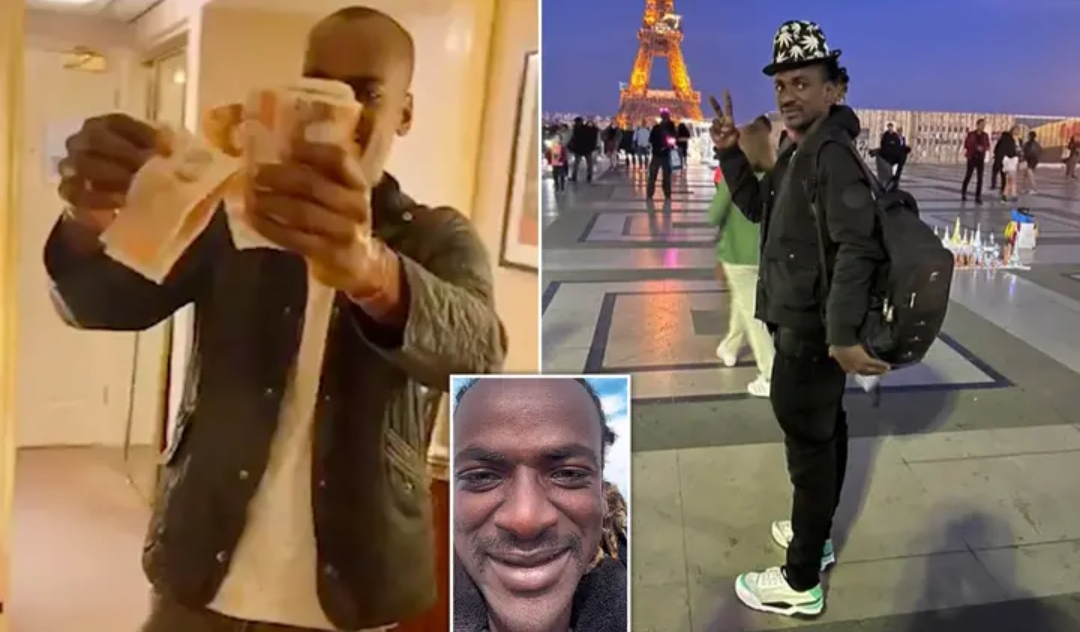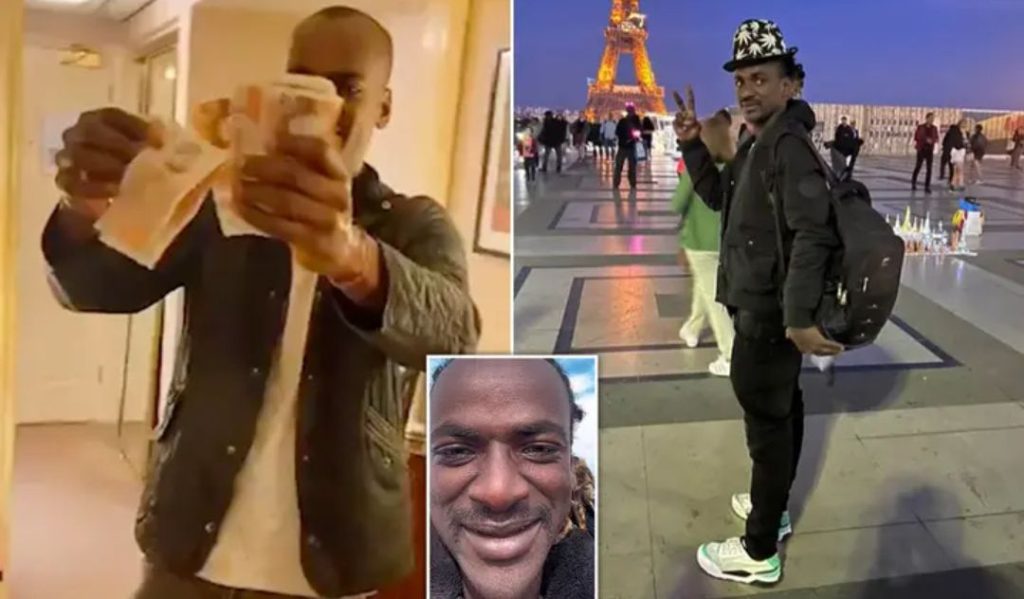
Omer Muhammad, a 34-year-old Sudanese national, has been caught boasting about his illegal cash-earning escapades in the United Kingdom. The story unfolds with Muhammad’s journey, starting with snapshots by the Eiffel Tower in France, just before he crossed the perilous English Channel in a small boat alongside other migrants, as reported by Daily Mail.
A video posted on Muhammad’s TikTok account captures the migrant delivery driver grinning as he recklessly showers a hotel room in Derby with £10 and £20 notes. Set to the backdrop of rap music, the footage showcases him throwing money on the floor, sitting in the midst of it, and dancing carelessly.

This unapologetic display of wealth raises questions about the ease with which migrants can exploit the UK’s asylum system, potentially luring more individuals to attempt the treacherous Channel crossing. The images of a carefree Muhammad surrounded by cash in a taxpayer-funded hotel room only intensify concerns about the efficacy of current immigration controls.
The Mail On Sunday conducted an investigation, locating Muhammad at the Midland Hotel in Derby, where he has resided for the past year and a half among 200 other asylum seekers. During the interview, Muhammad admitted to working in takeaways and on building sites, boasting earnings of up to £60 per day. Shockingly, he revealed that approximately half of the migrants in the hotel engage in illegal work, particularly in the booming food delivery industry.
When confronted about the TikTok video, Muhammad attempted to deflect blame, claiming the money belonged to a friend. This feeble excuse only serves to highlight the lack of accountability and transparency in the system, allowing individuals to exploit loopholes and engage in illicit activities without consequences.
Muhammad’s journey from Darfur, Sudan, to the UK reveals a disturbing pattern of illegal activities. After leaving his wife behind, he traveled through Libya and boarded a migrant boat to Malta, where he worked illegally for three years. His route further involved flying to Milan with a fraudulent Italian passport obtained from the black market, and then to Paris by train, all while sharing his exploits on social media.
The most alarming chapter in Muhammad’s journey unfolds in Calais, where he paid a Kurdish smuggling gang £600 to facilitate his entry into Britain via a small boat. The ease with which he navigated these illicit channels underscores the urgent need for strengthened immigration enforcement and comprehensive reform.
Muhammad’s story serves as a stark reminder of the vulnerabilities within the asylum system, allowing individuals to exploit the UK’s hospitality while engaging in illegal activities. It prompts a crucial examination of the existing safeguards and a call for stricter measures to prevent the abuse of the system that compromises the integrity of immigration controls.




